
Advertisements
Cancer is a scary disease. Basically, something causes cells within your body to grow abnormally. There are known causes for cancer – viruses, smoking, chemicals (like asbestos), sunburns, and drinking alcohol.
Foods contain antioxidants, minerals and vitamins that fight cancer. Eating these daily may protect you from cancer. If you are overweight, your cancer risk is increased. Losing weight through good nutrition will protect you as well.
Instead of one food in each group, we’ll look at the compounds. If you don’t like one food, there are others in that group. Many foods show up in different groups, so you can make every calorie count.


Allium
Garlic is one of the best sources of allium. Allium has anti-tumor and antimicrobial effects and helps prevent cardio-vascular disease. Garlic also kills H. pylori, bacteria associated with stomach cancer. Garlic may reduce the risk of colon, esophageal, pancreatic and breast cancers.
For best results, peel and chop a clove and let it sit 15 minutes. Use it to cook with or swallow with water.
Garlic is the most studied allium, but other in the family include chives, scallions, leeks, and onions.

Glucosinolates
Cruciferous vegetables like cabbage, kale, cauliflower and broccoli contain glucosinolates. These activate enzymes, like sulforaphane, as they pass through the intestines. Sulforaphane fight H. pylori and detoxifies environmental pollutants.
Cruciferous veggies, especially broccoli, reduce risk of prostate, lung, colon, breast, bladder, liver, neck, head, mouth, esophagus, and stomach cancer.
For best results, steam broccoli and add your daily garlic clove and olive oil. It is not only healthy for weight loss, but it is a tasty way to fight many cancers.

Lycopene
Lycopene is a carotene that has a bright red color. Lycopene appears to reduce the risk of prostate cancer. It’s also stopped breast, lung, and endometrial cancer cell growth in laboratory tests.
Tomatoes are a fantastic source of lycopene and cooking or processing them makes the lycopene even more available to your body. Add some tomatoes to your broccoli and garlic!
Other sources include guavas, watermelon, papaya, grapefruit, cooked red bell peppers, cooked asparagus, red cabbage, mangos and cooked carrots.
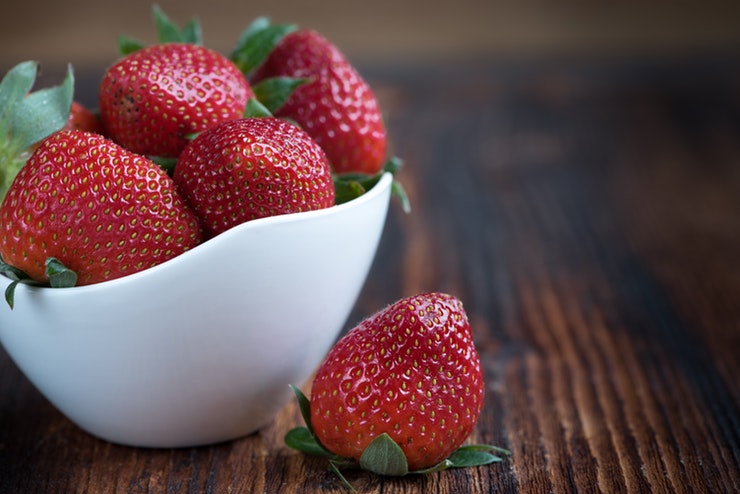
Ellagic acid
Ellagic acid is a polyphenol with antioxidant properties. Plants produce ellagic acid as a defense against infection. Ellagic acid appears most effective fighting skin, bladder, lung, esophagus and breast cancers.
Choose strawberries, grapes, blackberries, raspberries, cranberries, pomegranate, guava, pecans, and walnuts. Many of these include vitamin C, which only adds to the protective qualities. Remember that nuts are good for you in small amounts. They are high in calories and easy to overeat. Too many nuts won’t help you lose weight.
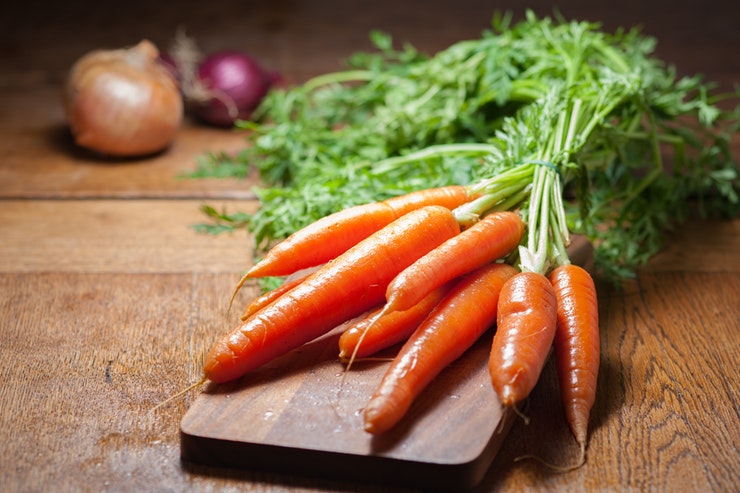
Beta-carotene
Another carotene that you need to fight cancer is beta-carotene. You probably know it best as carrots, but any red, yellow or orange fruit or vegetable contains beta-carotene. As an antioxidant, beta-carotene protects cell membranes and slows cancer cell growth.
Advertisements
Beta-carotene may protect against cervical, breast, mouth, pharynx and larynx, esophagus, and stomach cancers. Eat foods like carrots, apricots, broccoli, asparagus, grapefruit, chives, kale, onions and sweet potatoes.
Steam carrots whole for a huge amount of beta-carotene.
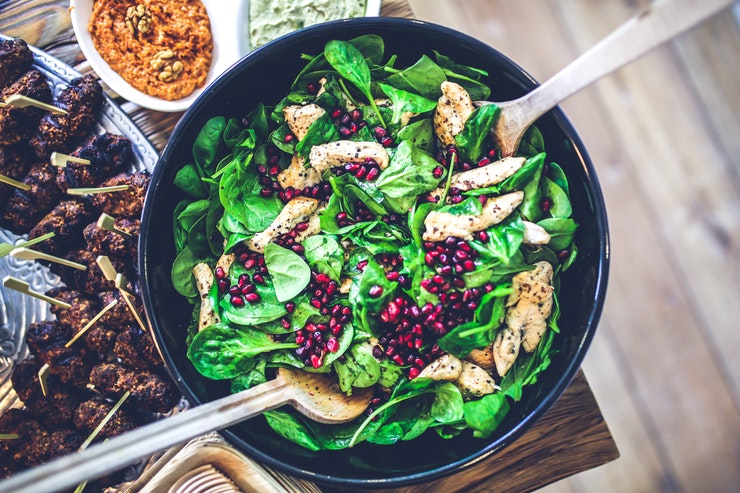
Lutein
Lutein, yet another carotene, is found in dark green leafy vegetables, most especially spinach. Lutein is important for vision, but may protect against esophageal, ovarian, endometrial, lung, and colorectal cancers.
These vegetables are high in fiber and contain folate, both of which are known to fight cancer.
Eat spinach raw or lightly cooked for best results. Other lutein rich foods include kale, squash, sweet corn, swiss chard, arugula, peas, egg yolks, and carrots.

Fiber
Fiber is what is left over when your body digests everything else from plants. Fiber helps waste move through your intestines and carries toxins with it. By eating more fiber, you clear your intestines out more quickly. Fiber also helps you feel full longer and is essential to weight loss. Fiber is linked with decreased colorectal cancer.
One excellent source of fiber is whole grains. If you eat bread, eat whole grain bread. White bread has almost no fiber and is treated as sugar in your body.
Besides fruit and vegetables, eat beans and legumes, quinoa, oats, popcorn (not buttered!), and chia seeds.

Tannin
One very important polyphenol is tannin. These have cancer fighting, antiviral, antibacterial, and anti-fungal properties. Green tea is very high in tannins and has been shown to reduce blood sugars and insulin levels. That makes it excellent for supporting weight loss.
Try to drink green tea with every meal. It is an easy way to keep you hydrated and has a lot of benefits. Other sources include coffee, pomegranates, persimmons, cranberries, strawberries, blueberries, grapes, and 70% cocoa chocolate.
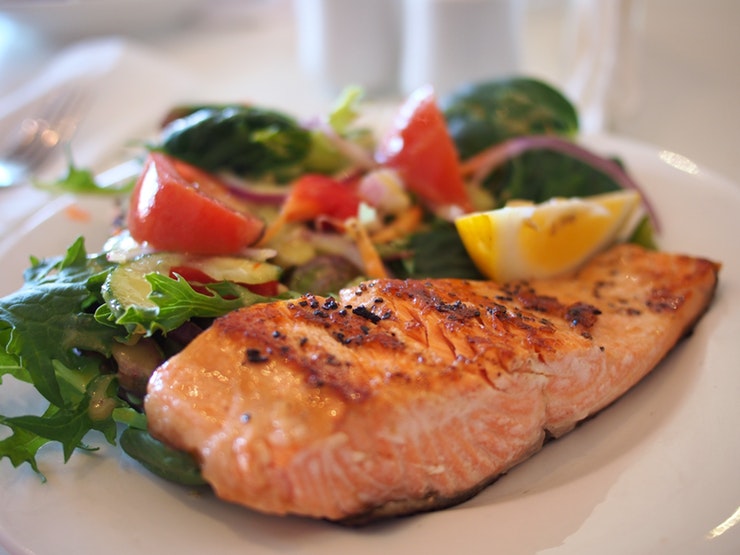
Selenium
Selenium is an antioxidant that reduces some cancers. It protects you from metals like mercury, cadmium and silver and slows tumor growth. Studies show that selenium fights esophageal, lung, liver and gastric cancers.
Because selenium can be toxic, be careful about taking supplements. Instead eat 6 Brazil nuts a week. Fish, beef, chicken, and pork also contain selenium. Make sure to pick the leanest meat to encourage weight loss.

Vitamin E
Studies show that vitamin E protects against cancer if it is eaten as a food, not taken as a supplement. The easiest way to get vitamin E is to choose your cooking oils carefully.
Wheat germ oil, sunflower oil, and safflower oil are excellent sources. Avocados, mangos, and berries are excellent as well and contain many other cancer fighting properties. Healthy oils also help you lose weight.
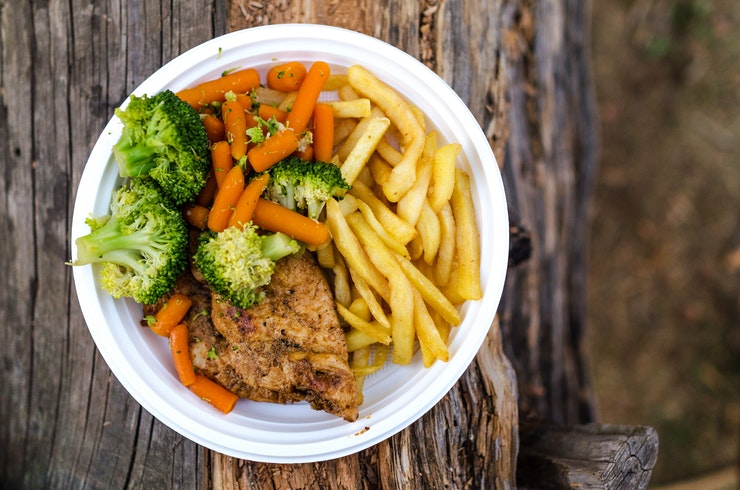
Advertisements
Conclusion
For best cancer protection, lose weight, stop smoking, limit alcohol and exposure to toxins. Support this by eating fruits and vegetables rich in carotenes and polyphenols. Add healthy fiber for added protection. Avoid processed meats and eat less red meat.
You can take these cancer fighting chemicals as supplements, but your body absorbs them better when eaten fresh and raw or lightly steamed. The best way to fight cancer is to eat a rainbow of vegetables and fruits every day. The more variety, the more important nutrients you will get in every mouthful.





Comments